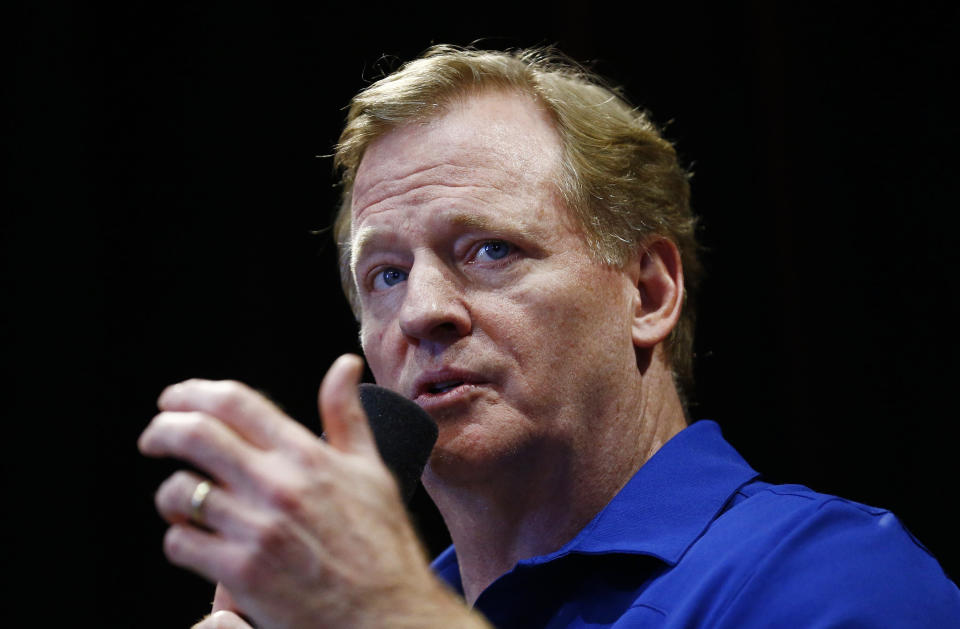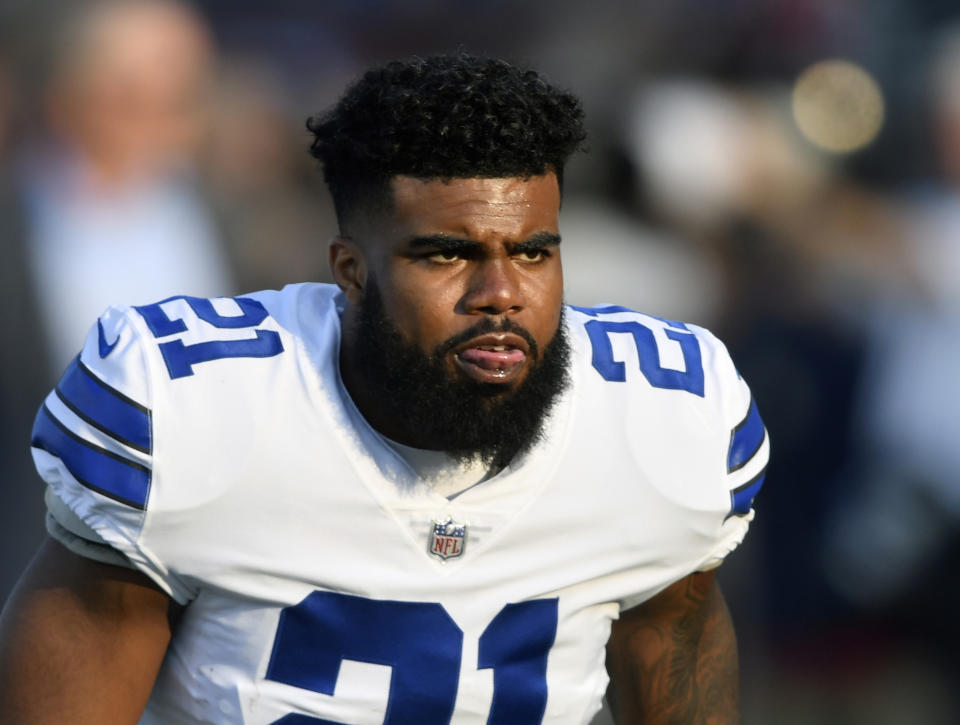Even when Roger Goodell wins, he loses: Why the NFL botched the Ezekiel Elliott case
It’s commendable the NFL is attempting to take a firm stance against domestic violence, ending decades of weakness and double standards on such a terrible plague.
Not hitting women is easy. Too often NFL players have done it anyway.
Yet, as with so much of the Roger Goodell era, even a well-intentioned idea can come undone via arrogance and incompetence.
Everything these days is a reaction to the league doing a poor job investigating Ray Rice. Then, the NFL failed to follow through and acquire the ugly elevator surveillance tape, only to be horrified and humiliated when the video later emerged. Now, it supposedly presses everything.
Any investigative and judicial system, however, has to be rooted in transparency and fairness, or else whatever verdict it renders – even seemingly the most justified – is compromised. To cut corners is to undermine not just the righteousness of the decision, but the victim seeking justice.

Only Ezekiel Elliott and his one-time girlfriend, Tiffany Thompson, know for sure what happened between them in July 2016. Thompson said she was repeatedly abused. Elliott vehemently denies it.
Authorities in Columbus, Ohio, chose not to prosecute. The NFL conducted its own 13-month investigation and found Elliott guilty, leveling a six-game suspension last month. Elliott appealed and lost Tuesday night in a decision that was not a reaffirmation of the ruling but based solely on whether Goodell had enough information to make a ruling.
A restraining order Elliott filed against the league will be determined late Friday by a Texas judge. Either way, Elliott will play Sunday in the Dallas Cowboys’ season opener against the New York Giants. Nothing after that is guaranteed.
This isn’t to say Elliott did or didn’t do it. It’s to say, if the NFL is going to make that determination, if the league is going to discipline a player for an act as serious as domestic abuse, it needs to be airtight in both its reasoning and the process that led to its decision.
The most glaring issue is NFL investigator Kia Wright Roberts testified at Elliott’s appeal hearing that she would not have recommended suspending Elliott in this case. She cited a lack of corroborating evidence, both via witnesses and other data, to back up Thompson’s story. She was the only person from the NFL to speak to Thompson.
The NFL is within its rights to reject the opinion of its investigator, but doing so warrants an explanation. Rather than provide one in its original ruling that deemed Elliott’s actions “inappropriate and disturbing,” the league failed to mention Robert’s counter-opinion at all.
The NFL just acted like it didn’t exist. Or, more likely, operated under the belief the counter-opinion would never get out.
This is malpractice. And not just if you are inclined to believe Elliott did no wrong.
It’s especially malpractice if you’re the NFL and you believe that he did.
Having the lead investigator disagree with the decision due to a lack of evidence and credibility has to be revealed. Then it needs to be explained away, immediately and thoroughly. It’s the obvious weak point of the decision, and thus needs to be answered for in convincing fashion.
This is Day 1 of law school stuff. You have to fight for your accuser.
To just hope no one finds out is ridiculous. Elliott and the NFLPA were going to pursue every defensive angle available. Everything was (and is) going to come out. It’s a lesson the NFL should have learned during deflate-gate when it blatantly misstated testimony from Tom Brady, only to be burnt when a federal judge, against the league’s vehement protest, unsealed transcripts of the hearing.
Mostly, though, this is completely unfair to Thompson, who shouldn’t be put on her heels by the now one-sided revelation about Roberts’ opinion. If the NFL was going to completely believe Thompson and base its case on Thompson’s word, then it needed to proactively defend any obvious attacks on her.
Instead, the league hung her out to dry.

The NFL leaned heavily on photos and forensic evidence in determining Thompson was injured, but it also needed to declare in its initial ruling why that evidence was so compelling that Roberts’ opinion should be discarded. With the league not doing that clearly and pointedly, the public has only heard that the investigator, like the police and prosecutors, didn’t think there was enough to move forward. That’s a damaging and depressing place to put an accuser.
The NFL believes Elliott is guilty. It believes Tiffany Thompson. It may be correct. Yet the league’s floundering has armed Elliott and his lawyers with the reasonable argument to muddy the waters, cast doubts on Thompson and rally support.
It was the league that has proven to be its own – and its chief witness’ – worst enemy here.
And that’s why this is so unacceptable. And that’s why it goes so far beyond this single case. This isn’t the inflation level of a football anymore. This is ugly, real-world stuff.
Why would any future victim trust the NFL to handle these cases properly? Why would any future victim trust the NFL to adequately argue for her? Why would any future victim come forward and speak to the league?
Eradicating domestic violence in the league is an admirable goal. Using an investigative and disciplinary system built on short-term, blunt-force thinking, however, is another unpardonable systemic failure by Roger Goodell’s NFL.
This one comes with real and chilling consequences.
More NFL news from Yahoo Sports:
More from Yahoo Sports:
• Jeff Passan: Baseball’s long and confusing history with cheating
• These 32 NFL players are about to blow up this season
• Bryce Harper steals the show with new cornrows
• Ray Lewis: Girlfriend’s ‘racist’ tweet cost Kaepernick a job
